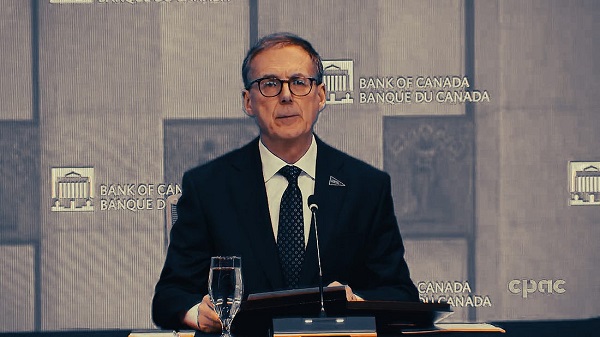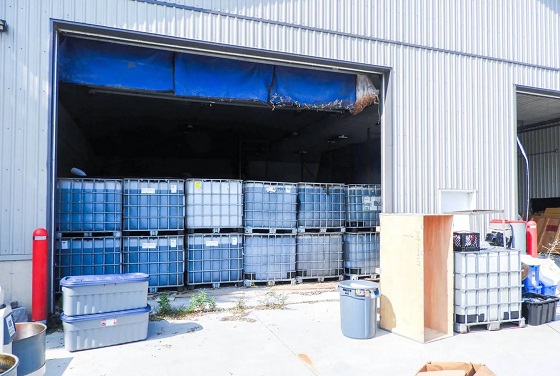International
Switzerland is No Longer Neutral

From Armstrong Economics
By Martin Armstrong
“Neutral like Switzerland” can no longer be a saying as the Swiss government has announced it is joining the European Sky Shield Initiative (ESSI) to develop a shared missile defense system across Europe. Switzerland is neither an official member of the European Union nor a member of NATO. Yet, the nation forfeited its neutrality stance years ago as Swiss leaders continued to adopt globalist rules.
The ESSI was initially proposed by Germany in 2022 amid the Russia-Ukraine war. The program will integrate with NATO’s Integrated Air and Missile Defense (IAMD) to enhance Europe’s air defenses. The powers that be know war is on the horizon, but they are betting on most of Europe continuing to fight on the same team. Armament chief Urs Loher has signed the memorandum of understanding (MoU), officially making Switzerland the 15th nation to join this coalition.
Switzerland claims that the MoU does not force it into any binding obligation as the government may choose its level of involvement. The Swiss government also claims that it may withdraw from the ESSI if any member becomes involved in a war. “With its participation in the ESSI, Switzerland is increasing international opportunities for cooperation: ESSI enables better coordination of procurement projects, training and logistical aspects in the area of ground-based air defense,” the government noted in a statement. The initial project will protect Europe against medium-range missiles, but naturally, the plan is to accelerate this technology.
Switzerland lost its tax haven status years ago when it began offering up banking information to foreign governments. Switzerland completely capitulated its historic safe-haven status to the entire world. The country was born from a tax revolt against the Hapsburg dynasty in Austria. The tax collector made William Tell to shoot an apple off his son’s head with an arrow. Switzerland then remained neutral in war and religion, serving as a safe haven for those who would be religiously persecuted. All of that is now gone.
In 2015, the Swiss Senate passed a resolution to exchange ALL information on anyone who has any assets in Switzerland. They have surrendered their sovereignty to this worldwide effort to destroy the entire global economy because politicians can never run any government efficiently.
Of the nation’s three main sectors, the tertiary sector is the most important for the Swiss economy. It includes banking, insurance, and tourism, employing more than 75% of Switzerland’s workforce. Over a fifth of the working population makes up the secondary sector, i.e. industry, trade, and crafts. The machine, metal, watch, and textile industries play a significant role, as do the chemical and pharmaceutical industries, which rely heavily on imports and exports. By far, banking was a major sector at the top of the list.
The Swiss economy was built on its banking expertise and security. That is now gone in the age of hunting cash globally. Consequently, the economy of Switzerland lost its primary competitive advantage economically. Now it must develop industries that are competitive globally. It needs more than chocolate and Rolex watches.
Yet, we saw over COVID how tyrannical the Swiss government has become though countless regulations and threats to imprison any dissenters. They even outlawed singing in public in the name of COVID simply to see how far they push the masses. It comes as no surprise as the nation is part of the globalist agenda for the Great Reset and Agenda 2030. They toyed with the idea of imprisoning citizens for heating their homes in the name of climate change, as one example. Swiss authorities have utterly change the demographics of their country by permitting mass migration as the population surpassed 9 million for the first time in history.
Then, the Swiss government was eager to aid Europe’s proxy war in Ukraine and placed sanctions on Russia. “Russia’s military aggression against Ukraine is a serious violation of the most fundamental norms of international law and is without precedent in recent European history. Within the scope of its political room for manoeuvre, the Federal Council took this into account in its decision to join the EU sanctions,” the government stated. Is that neutrality? If someone loaded your enemy’s gun, would you consider that person to be neutral?
Switzerland continues to claim neutrality. “Neutrality is not set in stone; on the contrary, it is an instrument of foreign, security and also economic policy that must be adapted to the prevailing political climate. The Federal Council has in the past regularly examined and adapted its understanding of neutrality; for example, it did so through the neutrality report of 1993. The war in Ukraine is challenging the existing international and, above all, European security order,” states the Federal Department of Foreign Affairs (FDFA).
Russia already sees that Switzerland is aligned with the West and rejected the nation’s offer to mediate peace talks in 2022. Switzerland has managed to maintain neutrality for 500 YEARS. The globalist neocons who infiltrated all government cabinets have compromised Switzerland and are stripping it of everything that once made it a great nation.
Crime
Canada Seizes 4,300 Litres of Chinese Drug Precursors Amid Trump’s Tariff Pressure Over Fentanyl Flows

In what appears to be the second-largest Chinese precursor-chemical seizure in British Columbia in the past decade, Canadian border and police officials announced they intercepted more than 4,300 litres of chemicals used to manufacture fentanyl and other synthetic drugs at a notoriously troubled port in Delta, B.C.
The announcement of a seizure that occurred in May 2025 comes amid President Donald Trump’s continuing pressure on Ottawa to crack down on fentanyl trafficking in the province — which U.S. officials say has become a key production and shipment point for Chinese and Mexican traffickers.
The seizure — announced jointly by the Canada Border Services Agency (CBSA) and the RCMP — underscores the scale and persistence of global trafficking networks funnelling illicit materials into Canada’s drug markets.
According to the agencies, border officers examined two marine containers that arrived from China in mid-May, both bound for Calgary, Alberta. Acting on intelligence developed by CBSA’s Pacific Region, officers discovered 3,600 litres of 1,4 Butanediol, a key ingredient for producing GHB, often known as the “date-rape drug”; 500 litres of Propionyl Chloride, a chemical precursor used to synthesize fentanyl; and 200 litres of Gamma Butyrolactone (GBL), another controlled intoxicant.
The chemicals were concealed inside 60 clear jugs and 20 blue drums within the containers. Investigators believe the shipment was intended for use in clandestine drug laboratories. The RCMP confirmed that an investigation into the importation network remains ongoing.
The seizure comes amid growing concern about Canada’s port security, particularly in Metro Vancouver, where experts and local officials say criminal networks are exploiting gaps in federal enforcement.
The Delta seizure follows a series of major CBSA operations targeting precursor chemicals at Pacific ports. In May 2022, CBSA officers in the Metro Vancouver District examined a container from China declared as “toys” and discovered 1,133 kilograms of the fentanyl-precursor chemical Propionyl Chloride, with the potential to produce more than a billion doses of fentanyl.
Public Safety Canada also reported that in the first half of 2021, CBSA seized more than 5,000 kilograms of precursor chemicals, compared with just 512 kilograms in 2020 — reflecting what officials called a “dramatic escalation” in attempts to smuggle fentanyl inputs into the country.
In 2023, the City of Delta released a report highlighting major vulnerabilities at port terminal facilities, warning that there is “literally no downside” for organized criminals to infiltrate port operations. The report noted that British Columbia’s provincial threat assessment rated ports as highly susceptible to corruption and organized-crime infiltration.
At the time, Delta Mayor George Harvie called the lack of a dedicated national port-policing force “a threat to national security.” In comments to the Canadian Press, Harvie said that while Canada’s ports fall under federal jurisdiction, the “total absence of uniformed police at the facilities makes them obvious targets for criminal elements — from Mexican drug cartels to biker gangs.”
“We’re witnessing a relentless flow of illegal drugs, weapons and contraband into Canada through our ports, and that threatens our national security,” Harvie said.
The Port of Vancouver complex, which includes major terminals in Delta, Surrey, and Vancouver, handles roughly three million containers annually, with millions more expected as port expansion plans move forward.
The Delta report reiterated how difficult it has become to police these sprawling operations since the Ports Canada Police were disbanded in 1997. More than a quarter-century later, Harvie said, the consequences of that decision are now “alarmingly clear.”
The CBSA announcement today comes as U.S. President Donald Trump has imposed tariffs on Canadian exports, accusing Ottawa of failing to interdict the flow of fentanyl and precursor chemicals trafficked through British Columbia ports. Washington has repeatedly pressed Canada to strengthen port enforcement and anti-money-laundering controls, citing the West Coast’s role in China- and Mexico-linked trafficking networks.
Simultaneously, in trade negotiations with Beijing, Mr. Trump announced a reduction in tariffs tied to the fentanyl supply chain — raising concern that Washington has eased pressure on China, the primary source of finished fentanyl now responsible for hundreds of thousands of overdose deaths across North America.
Subscribe for free to receive new posts and support my work.
For the full experience, please upgrade your subscription and support a public interest startup.
We break international stories and this requires elite expertise, time and legal costs.
Business
“We have a deal”: Trump, Xi strike breakthrough on trade and fentanyl

President Trump declared “we have a deal” Thursday after meeting with Chinese President Xi Jinping in South Korea, describing their nearly two-hour summit as “a 12 out of 10.” Speaking aboard Air Force One, Trump told reporters the two leaders reached a sweeping agreement to stabilize trade relations and address the deadly fentanyl crisis. “We have a deal. Now, every year we will renegotiate the deal,” Trump said. “But I think the deal will go on for a long time.”
According to Trump, Xi agreed to suspend for one year China’s export restrictions on products made with rare-earth and critical minerals — materials essential to the production of semiconductors, batteries, and high-tech magnets. “There’s no roadblock at all on rare earth,” he said. “It’s a one-year deal that I think will be very routinely extended.” In exchange, Trump said the U.S. would lower the average tariff rate on Chinese imports from 57.6% to 47.6%. Trump emphasized that Xi also committed to intensifying China’s crackdown on fentanyl exports, which have been a major driver of overdose deaths in the United States. “We agreed he’s going to work very hard to stop the flow,” Trump said. “I think you’re going to see a big difference.”
Beijing also pledged to resume “tremendous” purchases of American soybeans, reversing its earlier retaliatory halt. In a Truth Social post later Thursday, Trump said China had additionally agreed to begin purchasing U.S. oil and gas, noting that “a very large-scale transaction may take place concerning the purchase of oil and gas from the Great State of Alaska.” The president confirmed that Taiwan was not discussed during the meeting but said both sides talked about working together to bring an end to the war in Ukraine. “We didn’t really discuss the Russian oil,” he added. “We discussed working together to see if we can get that war finished.”
The meeting, held at a South Korean air base, marked the first in-person exchange between Trump and Xi since his return to the White House. The two leaders greeted each other warmly, with Xi telling Trump, “Great pleasure to see you again.” Xi praised Trump’s leadership, saying, “China’s development goes hand in hand with your vision to make America great again,” and added that the two nations “are fully able to help each other succeed and prosper together.” Much of Thursday’s agreement builds upon a framework negotiated earlier this month in Kuala Lumpur between U.S. and Chinese trade teams.
Trump said he plans to visit China in April, calling the meeting “amazing” and “an outstanding group of decisions.” He did not say whether the pending TikTok deal was discussed. The renewed cooperation on fentanyl follows years of tension over China’s role in the U.S. opioid crisis. The CDC reports the drug has killed nearly 330,000 Americans in the past five years — roughly one in every 1,000 people. Trump has long pressed Beijing to stop the export of precursor chemicals used to make fentanyl, arguing the problem is both moral and economic. “They make $100 million selling fentanyl into our country,” Trump said last week. “They lose $100 billion with the 20% tariff. It’s not a good business proposition.”
Trump left Thursday’s summit expressing confidence that the new arrangement marked a major step forward. “On the scale of 0 to 10, with 10 being the best, I would say the meeting was a 12,” he said. “It was an amazing meeting — and I think this deal will go on for a long time.”
-

 National1 day ago
National1 day agoCanadian MPs order ethics investigation into Mark Carney’s corporate interests
-

 Business2 days ago
Business2 days agoFord’s Liquor War Trades Economic Freedom For Political Theatre
-

 Banks2 days ago
Banks2 days agoBank of Canada Cuts Rates to 2.25%, Warns of Structural Economic Damage
-

 Bruce Dowbiggin18 hours ago
Bruce Dowbiggin18 hours agoGet Ready: Your House May Not Be Yours Much Longer
-

 Alberta1 day ago
Alberta1 day agoNobel Prize nods to Alberta innovation in carbon capture
-

 Business2 days ago
Business2 days agoBill Gates walks away from the climate cult
-

 MxM News1 day ago
MxM News1 day agoTrump ‘Grateful’ For Bill Gates Pivot, Declares Victory Over ‘Climate Change Hoax’
-

 Internet2 days ago
Internet2 days agoMusk launches Grokipedia to break Wikipedia’s information monopoly





